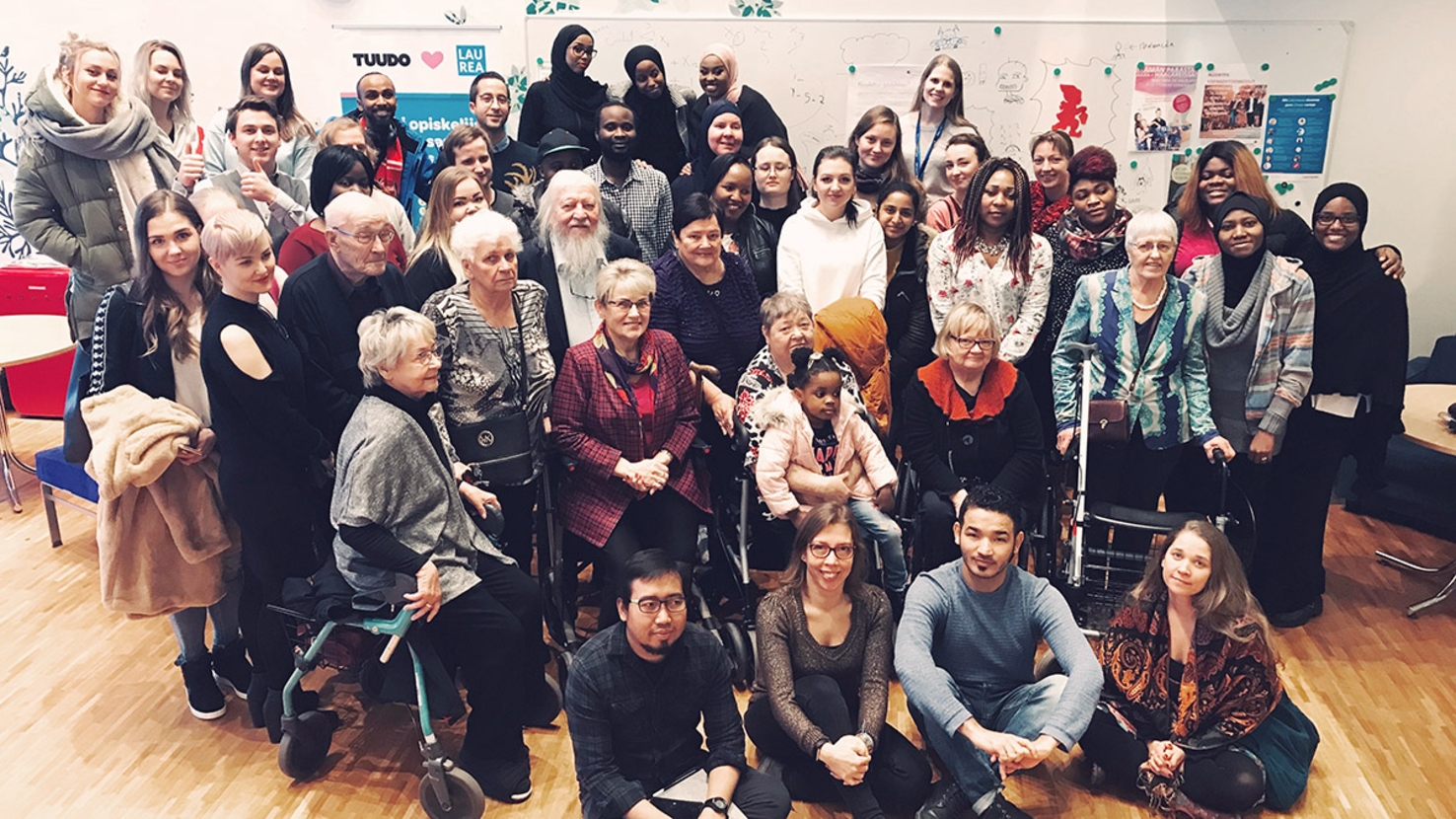Exciting encounters and learning new things in meetings of seniors and students
Students in the English-language Bachelor’s degree programmes in Nursing and Social Services developed ideas on utilising technology for seniors.

How does the analogue generation cope in the digital era? Laurea students asked that question of themselves and their surroundings many times during the autumn semester. This issue was in focus as part of the first-year studies in the English-language Bachelor’s degree programmes in Nursing and Social Services. The study unit shared by two degree programmes was provided under the supervision and with the support of the study unit teachers Lloyd Bethell and Jonna Vierula as well as Tiina Leppäniemi, project manager of the TEKNO – Smooth Expertise in Health and Well-being Technology project.
The large student group was divided into multidisciplinary teams of four people, and each team was partnered with a volunteer from the Vantaan Invalidit VANIN ry senior organisation. The encounters between students and seniors covered important themes: the seniors’ coping at home, daily challenges faced by seniors and the disabled, the opportunities provided by health technology to solve them, and the overall awareness of the available assistive solutions.
The study unit culminated in a shared seminar day at which the student teams presented the results of their observations and the solutions and viewpoints they had come up with. The most common challenges brought up by the seniors included mobility issues, difficulties with accessing technological services and products (e.g. seniors do not have smartphones or internet access) and the financial obstacles to purchasing them, and loneliness.
- Seniors’ threshold to start using technology is high. That is, the threshold created by preconceived ideas. The rollator is a good example: one of the seniors summed up their feelings about the device by saying that one feels ashamed and so old when one has to resort to using a rollator.
- The students thanked them for bringing it up since this information also helps students understand the thresholds, whether emotional or physical, related to using assistive devices.
The dialogue was lively throughout the day. The joy of seeing each other again was tangible at the reunion of the seniors and students from the study unit after the study unit had ended. The meetings made a lasting impression on both parties. The students were interested in engaging in future voluntary work similar to the study unit encounters, and the seniors have lasting, fond memories of their participation. One of the participants commented:
- Thank you! It was so nice that you visited and had time for a hug before leaving. It felt like I belonged.